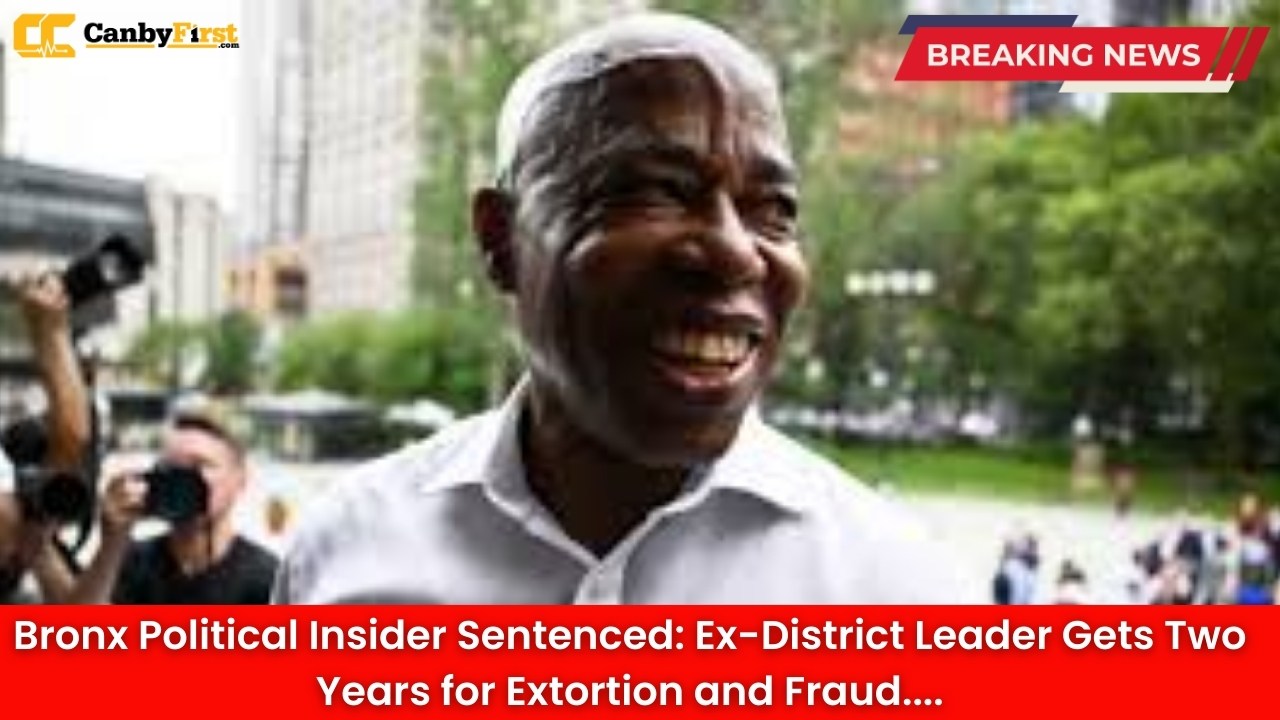New York, US: A former Bronx Democratic district leader and Board of Elections employee has been sentenced to two years in federal prison after being found guilty of extortion and fraud in a case that revealed deep corruption within local politics.
According to prosecutors, the former political figure abused his position of authority to enrich himself, targeting individuals seeking political support and public service opportunities. The ruling, handed down in federal court, underscores the government’s commitment to cracking down on public corruption schemes that erode trust in democracy.
The Case
The defendant, once a rising figure in Bronx politics and a trusted insider within the New York City Board of Elections, was indicted for using his influence to extract bribes and commit wire fraud. Investigators revealed that he leveraged his standing as both a party leader and Board of Elections employee to solicit payments from associates, local candidates, and community members seeking political backing.
Also Read
Court documents described a series of manipulative schemes where the defendant promised campaign assistance, political favors, or job-related benefits in exchange for cash. Instead, he pocketed the money while failing to deliver on most of his claims, leaving victims both embarrassed and financially damaged.
FBI Investigation
The Federal Bureau of Investigation (FBI) led the probe, after multiple complaints surfaced about irregularities in local political dealings tied to Bronx elections. Agents uncovered recordings, documents, and testimony that painted a picture of systemic manipulation.
In a statement, law enforcement authorities emphasized that such crimes are not just theft, but an assault on public trust. By exploiting the public office and political machinery, the former leader perpetuated a cycle of corruption that undermines faith in free and fair elections.
The Court’s Decision
Judge sentencing the case delivered a pointed message during the proceedings: corruption, even at the local level, will not be tolerated. While acknowledging the defendant’s contributions to politics early in his career, the judge insisted that his crimes represented a betrayal of those who placed their confidence in him.
As part of the sentence, the defendant will serve two years in federal prison, followed by supervised release. He was also ordered to forfeit illicit funds obtained through the fraudulent schemes and pay restitution to victims.
Public Reaction
The conviction has sparked a wave of discussion within the Bronx political community. Many residents and reform advocates see the case as symbolic of longstanding problems in local politics—where power, influence, and electoral positions sometimes blur into personal gain.
Political watchdog groups have welcomed the ruling as a step forward in cleaning up corruption but stress the need for deeper systemic reforms. Calls are mounting for stricter oversight of political party operations, especially in borough leadership elections where figures often operate with limited accountability.
Community activists further argue that incidents like this erode voter confidence and discourage civic engagement—issues that can have lasting impacts on turnout and democratic participation in neighborhoods already struggling with political representation.
Larger Implications
While this case was centered in the Bronx, officials suggest it highlights a broader issue across the state and the nation. Political corruption cases have repeatedly shown that even mid-level officials, party leaders, or election employees can significantly undermine institutions when they misuse their positions.
Legal scholars note that the sentence serves as both justice in this individual case and a larger deterrent to others who may consider exploiting public trust for personal profit. By sending a strong message through imprisonment rather than leniency, the court and federal prosecutors hope to reinforce integrity in the political process.
FAQ
Who was sentenced in this case?
A former Bronx Democratic district leader and later Board of Elections employee was sentenced.
What was the sentence?
He was sentenced to two years in federal prison, with additional penalties including restitution and forfeiture.
What crimes was he convicted of?
He was convicted of extortion and wire fraud, specifically tied to abusing his political role for financial gain.
Why is this case significant?
It highlights the dangers of corruption in local politics and reinforces federal efforts to deter similar abuses of public trust.
How are authorities responding?
The FBI and federal prosecutors have pledged continued vigilance against political corruption, promising to pursue both minor and major offenders wherever they abuse power.












